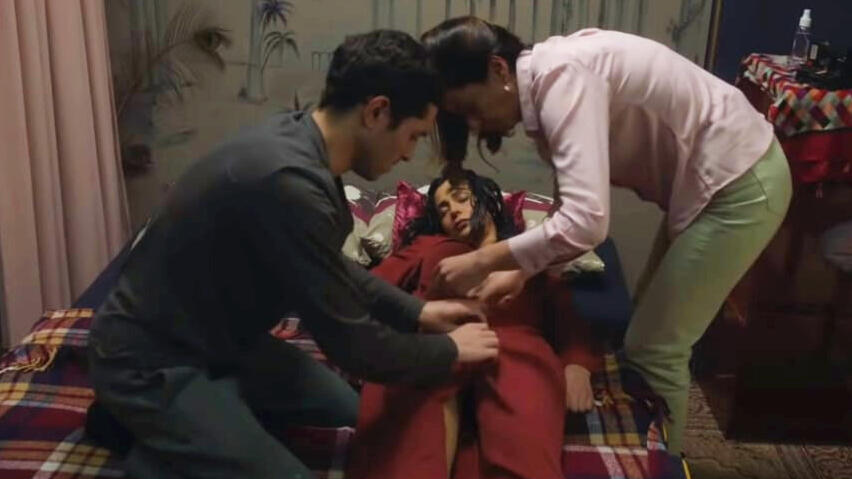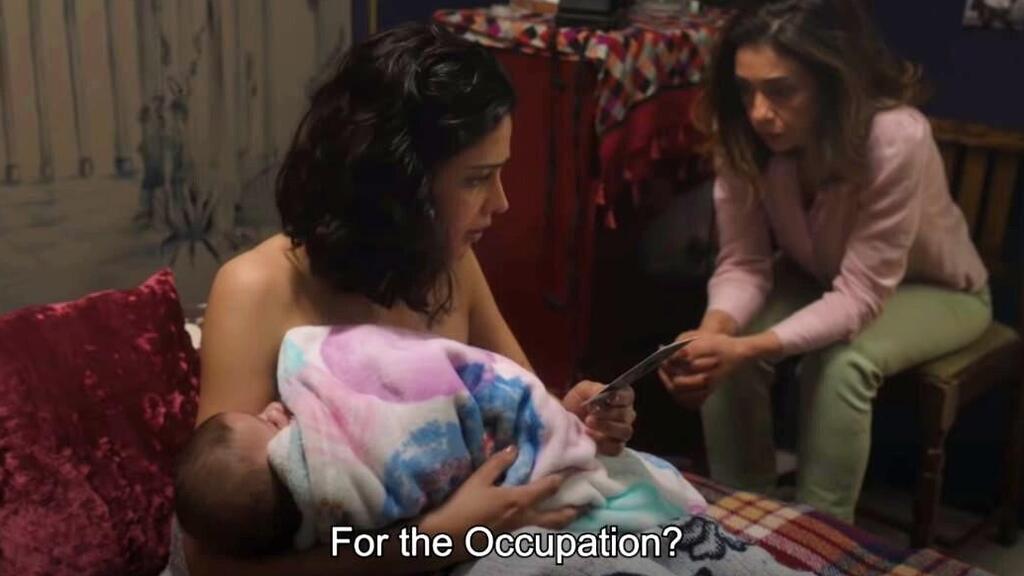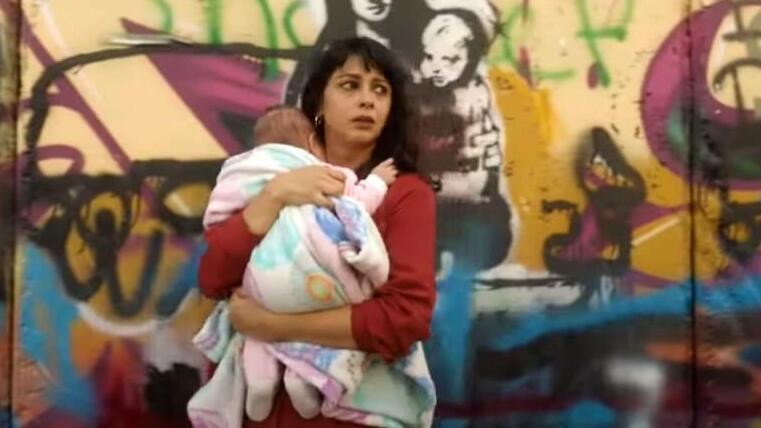A new Palestinian film that includes images of full frontal nudity has sparked outrage in the Arab world, with some calling to boycott the project.
The thriller "Huda's Salon" - directed by Palestinian filmmaker Hany Abu-Assad, premiered at Toronto International Film Festival last year, surprising many with graphic scenes of nudity.
In the film, actress Maisa Abd Elhadi from Nazareth appears completely naked alongside actor Samer Bisharat, who is also fully nude in the scene.
Although critically acclaimed in Toronto, now that the film has been making rounds at festivals in the Middle East, the audiences have been left less than enthusiastic, with conservative elements accusing the creators of desecrating Islam and violating the fight against "the Israeli occupation".
The scene, which doesn't include intercourse depicts how Israeli security services recruit informants using sexual blackmail.
The film revolves around a young mother from Bethlehem, who during a visit to her barber is drugged by the female owner of the salon - named Huda - stripped of her clothes and photographed with a stranger fully naked.
(Huda's Salon)
Huda then tries to force Rim to work for the Israeli security service, while the Palestinian Authority is working in the area to track down all informants.
Rim finds herself stuck between local law enforcement officials who wish to punish her, the Shin Bet that keep blackmailing her, and her estranged husband and family who disowned her.
The film appears to criticize the conservative, Palestinian society, its leadership, and Israeli security services for using unethical tactics.
After the film premiered at the Beirut Women's Film Festival, it was slammed for its "pornographic" content and evoked unfavorable responses of Palestinian officials.
"The problem is not the story or the idea, but the way it was executed. It is not necessary to present these images in such detail, for instance, how she is sedated and how they remove her clothes from," social activist Fouad al-Hofash wrote on his Facebook page.
"The Zionist entity (Israel) hasn't been able to pervert the image of the Palestinian society over the years the way it was done in this evil film besmirching the Palestinian heroes. This is a misrepresentation of the image of our society," wrote another social media user.
The Palestinian Culture Ministry also made sure to stay away from “Huda’s Salon” and wrote in a statement that “the crew of the film submitted a different version of the film, which doesn’t include the immoral scenes. The film violates the image of the Palestinian people and it is against its principles.”
Meanwhile, Palestinian Authority's Justice Ministry, the Waqf (an Islamic endowment of property to be held in trust and used for a charitable or religious purpose), and other Islamic organizations joined together to demand the film's boycott and said the images presented in the film "contradict the religious, moral and cultural values of the Palestinian people".
It added that "the offensive film must be removed, prevented from being screened and all participants in this moral crime must be brought to justice."
A similar statement was issued by the Gaza Strip Youth and Culture Authority, which demanded decisive action against the creators.
"The film infringes on the struggle of the Palestinian people. This misrepresentation deals with the issue of contacting the occupation in a wrong and offensive way, the facts are missing. The film highlights the role of the occupation and its ways of exploiting the Palestinians. It has no real facts and has nothing to do with reality. We call upon the officials and civil society to boycott it," said Gaza's Hamas rulers in a statement.
As a result of the public protest, actors Abd Elhadi and Awad are said to have received threatening messages.
The director, on his part, said the basic task of a filmmaker is to raise questions more than to provide answers. "The story that is told in the film is real, Israeli military intelligence used beauty salons to turn Palestinian women into informants. It is the task of the filmmaker to discuss various aspects of the topic," Abu-Assad was quoted as saying by the Arab media.
He added that "the great challenge of the film was not to outright say who is the victim and who is the offender. It is not impossible that the one you consider the offender may be the victim herself."




